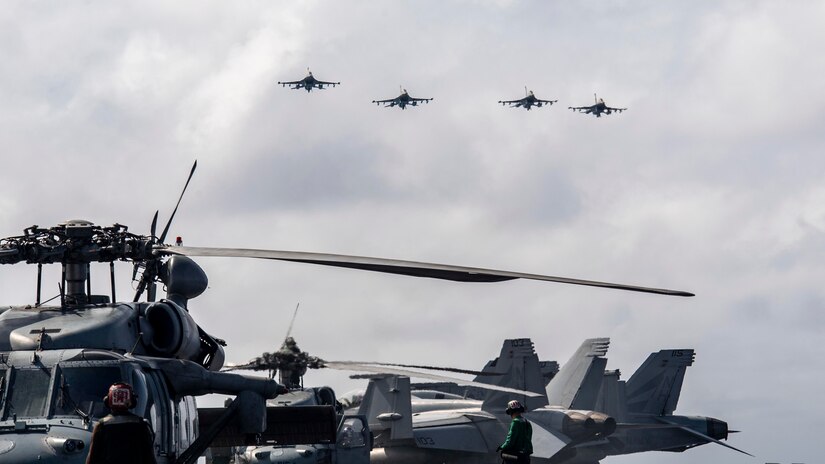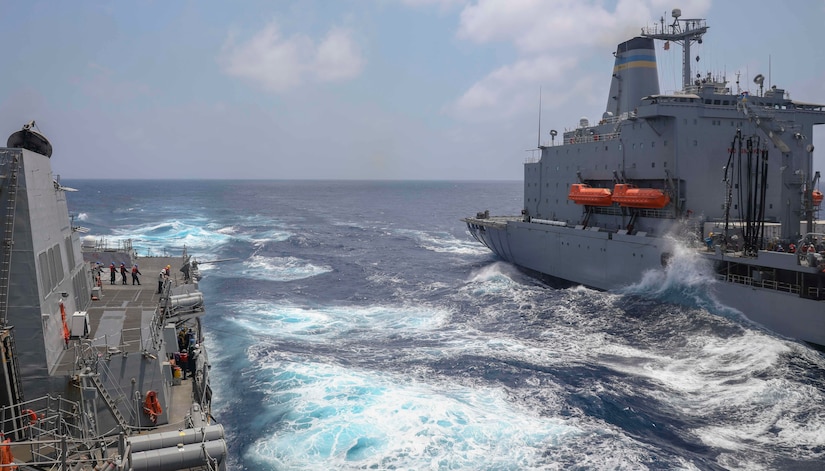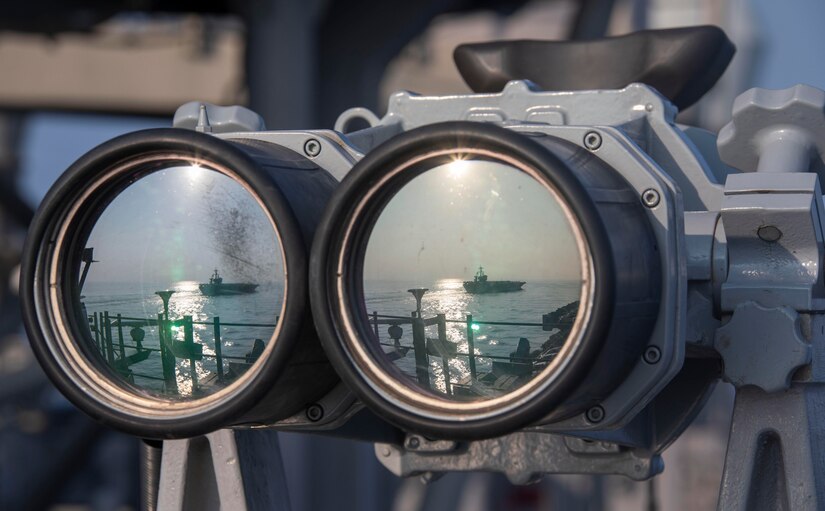April 30, 2021 | , DOD News
In a virtual address to the Aspen Security Forum, Hicks talked about the Defense Department's competition with China and what the department is doing to meet that challenge, especially regarding innovation and modernization.

"Beijing has the economic, military and technological capability to challenge the international system and America's interests within it. This is happening all along the continuum of conflict — from routine statecraft, through the use of sharp power or gray-zone tactics, to the potential for sustained combat operations and an expanded and capable nuclear enterprise," Hicks said.
As an example, Beijing continues to leverage its maritime militia to press its unlawful claims in the South China Sea, she said.

China's military capabilities are rapidly advancing in a number of areas, she said. Beijing continues to make progress — strengthening its ability to conduct joint operations — and it fields increasingly sophisticated conventional systems, such as long-range precision missiles and integrated air defense systems.
China is also advancing its space and cyber capabilities, Hicks said, adding that China presents a prolific and effective cyber espionage threat and possesses substantial cyberattack capabilities.

Despite these growing concerns, Hicks said open channels of communications and diplomacy with China are important.
"We anticipate the U.S. military will often serve as a supporting player to diplomatic, economic and other tools," she said.
Central to DOD's value in deterring bad behavior from Beijing is demonstrating the role and capability to credibly deter China's aggression, she said. "This will best position us to avoid a conflict."
Hicks said allies and partners are important in deterring Chinese aggression.

Also, the department's budget and research investments will focus on the threat and include nuclear modernization, cybersecurity, long-range fires, autonomy, artificial intelligence, shipbuilding and microelectronics, she said.
Incentivizing innovation, cutting red tape and working closely with the private sector and other government agencies are also important, she said. "This means being able to share best practices and key findings focused on the most important national security challenges."
Cooperation with Congress is also critical to ensuring the department receives the support required to deter China's aggression, she said.
"Let there be no doubt, China presents a real and enduring challenge," she emphasized.








No comments:
Post a Comment